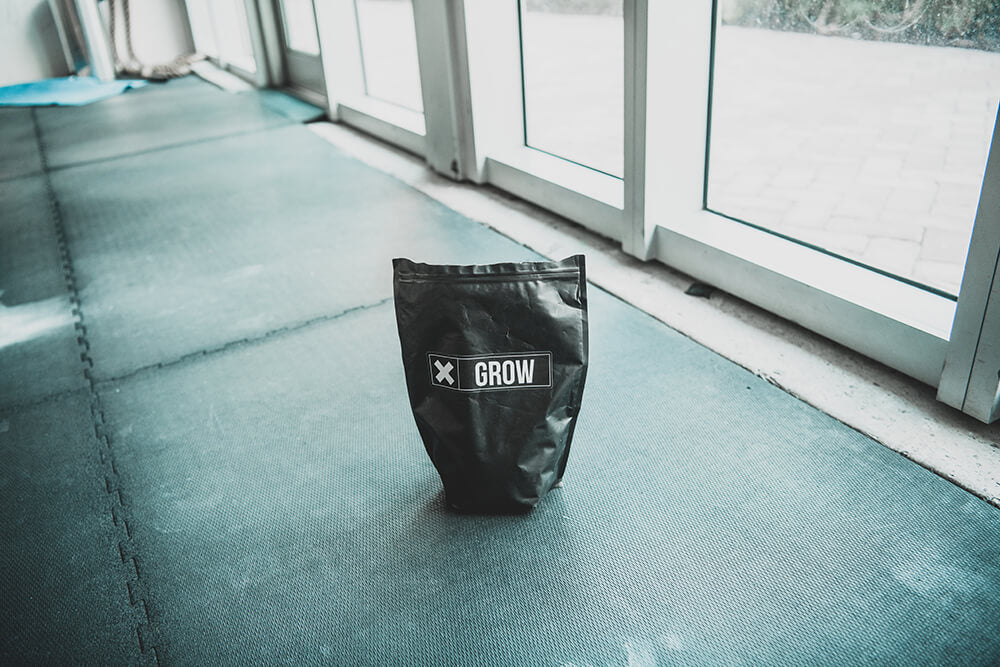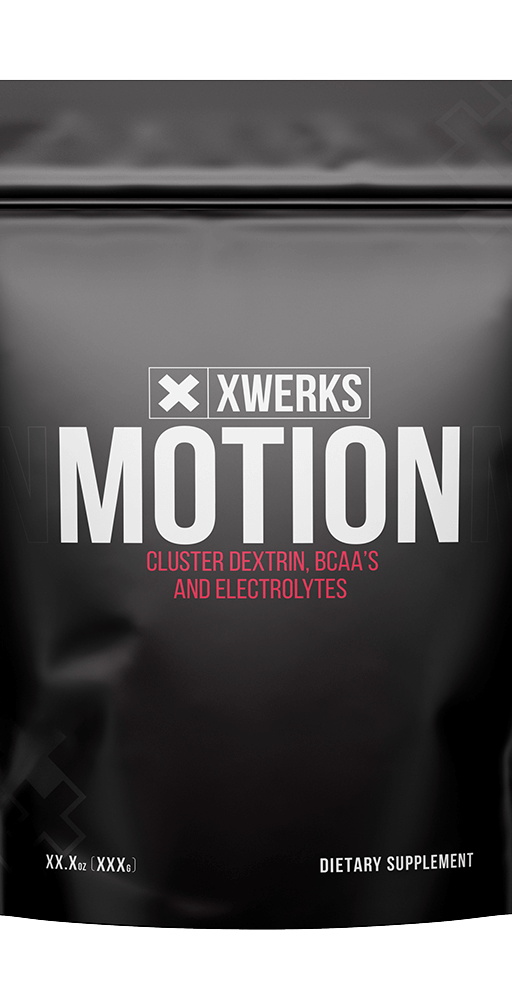Popular around the world among fitness enthusiasts, athletes and bodybuilders, whey protein is considered the best supplement for the growth of lean muscle mass, muscle recovery after workouts and even for general health.
What Is Whey Protein?
Cow’s milk essentially comprises 20% whey and 80% casein. The group of milk proteins that are isolated from whey (the liquid that is left over when milk is coagulated while producing cheese) is known as whey protein.
In the past, whey was considered as a by-product of cheese production and was usually discarded. The casein was then used to produce cheese. However, by the mid-20th century, the importance and value of whey started being recognized by the nutrition and health industry. Whey protein started to gain popularity as a fitness supplement and its popularity has only grown since then.
How Is Whey Protein Manufactured?
Although whey protein can be made from cheese or directly from milk, all major manufacturers of whey protein make it from milk. The whey is first separated from the milk by making use of straining methods that produces a whey product in the liquid form.
The whey is then pasteurized using HTST (High Temperature-Short Time) pasteurization where the whey is heated to a temperature of 161°F for around 15 seconds. The pasteurization process kills any bacteria that may be present in the milk. In the next step, the proteins are isolated from the whey liquid using the process of mechanical filtering or ion exchange.
The mechanical filtering process, also known as cross filtering, is a physical process which is more laborious and also expensive. However, it produces a higher-quality whey protein. The ion exchange process makes use of acids such as hydrochloric acid or bases such as sodium hydroxide to filter the whey protein, which is a cheaper process; however, this may result in the final product to lose vital compounds such as the immunoglobulins and lactoferrin.
The type of whey protein produced depends on the type and size of the filter which is used and the number of times that the whey is filtered. Using a finer filter and filtering the whey more number of times produces a purer product, as each filtering stage reduces the amount of fat, lactose, ash and other impurities.
Types of Whey Protein
Commercially, there are mainly 3 kinds of whey protein available – whey isolate, whey concentrate and whey hydrolysate.
Whey Isolate
This is the purest whey protein form available on the market and is considered the gold standard of whey proteins, which contains around 90-95% whey protein, a negligible amount of fat (0.5%-1%) and lactose (0.5%-1%). This is why whey isolate is an excellent source of protein for people with problems of digesting lactose or who suffer from lactose intolerance. And, since the whey isolate does not contain fat to slow down the digestion process, it is the best protein to have just after a workout. And, if you’re on a diet and are trying to avoid excess calories, then whey isolate is an excellent supplement for dieters. However, the drawback of whey isolate is that it lacks other beneficial components such as molecules that are beneficial to health and immunoglobulins.
Whey Concentrate
This usually has a lower protein content around 25% to 89% and most of the concentrates that are available commercially have a protein content of around 80%. Whey concentrate is not filtered as much as whey isolate and contains around 4% to 8% of fat, lactose and some minerals. Whey concentrates are cheaper than whey isolate. Often, whey protein concentrate is used in food products and protein bars.
Whey Hydrolysates
Also called hydrolyzed whey, whey protein hydrolysates are where the whey protein which has been treated with enzymes in order to break down the longer protein chains to shorter ones. This allows the whey protein to be absorbed easily by the body and also reduces gut problems and allergies. Whey hydrolysates are usually used in medical and sports nutritional products and formulas for infants.
Learn more about the types of whey protein
Advantages of Whey Protein
An Excellent High-Quality Protein Source
Whey protein is a high-quality, complete protein that contains all the essential amino acids that the body cannot manufacture and must be consumed via your diet. This makes whey protein superior to plant proteins. Compared to other kinds of protein, whey protein is more digestible and gets absorbed from the gut very quickly. These qualities of whey protein make it among the best dietary protein sources. Whey protein is popular as a dietary supplement among athletes, bodybuilders and those who require more protein in their diet.
Promotes Muscle Growth
As you grow older, your muscle mass starts declining, which results in fat gain and also increases the risk of several chronic diseases. However, this change in the body composition can be slowed down or prevented by adopting a strategy of strength training along with consuming foods that are protein-rich or by having protein supplements. High-quality protein sources like whey protein that is rich in the BCAA (branched-chain amino acids) leucine promotes growth. This is why whey protein is extremely effective for improved strength, preventing muscle loss due to age and for a good-looking, toned body. Whey protein is much better for muscle growth compared to other kinds of protein such as soy or casein.

May Help in Lowering Blood Pressure
One of the major risks for heart disease is hypertension or high blood pressure. Several studies show that consuming dairy products can lead to reduced blood pressure. This is probably because dairy products contain bioactive peptides or ACE inhibitors (angiotensin-converting-enzyme inhibitors). The ACE inhibitors present in whey proteins are known as lactokinins and many animal studies have revealed the beneficial effects of these lactokinins on blood pressure.
A study showed that when overweight subjects were given whey protein supplements of 54 grams per day for a period of 12 weeks, their systolic blood pressure was reduced by around 4%. Another study revealed that when the participants were given 22 grams of whey protein per day for around 6 weeks, there was a significant effect on their blood pressure. However, the blood pressure showed reduction only in the individuals who have slightly elevated or high blood pressure.
May Help in Treating Type-2 Diabetes
The characteristics of type-2 diabetes are typically impaired insulin function and high blood sugar. It has been found that whey protein can help to moderate blood sugar and also helps in increasing insulin sensitivity, as well as insulin levels and the effects of whey protein are comparable to those of certain diabetic drugs. So, whey protein can be used as an alternative treatment for type-2 diabetes. Consuming a whey protein supplement along with or before a meal that is high in carbohydrates can help to regulate blood sugar in both, people who are healthy, as well as those who suffer from type-2 diabetes.
May Help in Reducing Inflammation
When there is any damage in any part of the body, it results in inflammation. While short-term inflammation can be beneficial to the body, sometimes the inflammation can become chronic, which is harmful and can be the cause of several diseases. A study revealed that having high doses of protein supplements can help to reduce CRP or (C-reactive protein), which is a major marker of inflammation in your body.
May Be Helpful for IBD (Inflammatory Bowel Disease)
IBD causes chronic inflammation in the lining of the intestine and is usually a term used for ulcerative colitis along with Crohn's disease. Consuming whey protein supplements have shown beneficial effects in people suffering from IBD.
May Help in Lowering Blood Fats
High levels of LDL or bad cholesterol is high-risk for heart disease and one study revealed that when overweight people were given 54 grams of whey protein daily for a period of 12 weeks, they saw a significant reduction in LDL and total cholesterol. However, more studies are required to substantiate this claim.
Promotes the Feeling of Satiety
Among the 3 macronutrients i.e. carbs, protein and fat, protein is the most filling and helps to promote the feeling of satiety or fullness. Among the various types of protein, whey protein is most satiating when compared to soy and casein. This is particularly beneficial if you want to consume lesser calories, lose weight and makes whey protein an excellent addition to any weight loss diet.
Can Help in Weight Loss
Consuming high quantity of protein can help in weight loss and it can help to promote fat loss by boosting metabolism, thereby helping you to burn more number of calories, suppressing your appetite and reducing your calorie intake, and helping you in maintaining your muscle mass when you lose weight. It is seen that whey protein can be quite effective in promoting satiety and burning fat compared to other types of protein.
Helps the Body to Recover Faster after a Workout
Your muscles need protein when you finish exercising, especially leucine, to make them stronger and bigger. A study shows that whey protein can deliver leucine more quickly when compared to other types of protein like soy and casein, which enables faster muscle protein synthesis, which means that whey protein is a better choice as a post-workout supplement.
Helps in Re-Composition of the Body
If you’re looking to improve the composition of your body i.e. looking to lose fat and gain muscle, then whey protein is a great supplement that can help. A study showed that when individuals consumed whey protein before their meal, it helped in bringing about favorable changes in the body’s composition, waist circumference, body mass and appetite as compared to soy protein. And, an analysis of several studies revealed that whey protein consumption helped overweight or obese people shed fat and reduced the risk factors related to cardiovascular disease.
How to Use Whey Protein, Its Dosage and Its Side Effects
It is extremely easy to incorporate whey protein into your diet. Usually, whey protein is available in the market in the form of a powder, which can be consumed by mixing it with water or milk or adding it to yogurt, smoothies or shakes. You can easily buy whey protein from a health store or online.
The recommended dosage of whey protein is around 25 grams to 50 grams a day. But, you must keep in mind that taking too much protein is not really beneficial, as our body can use only a certain amount of protein at a time. Most people can tolerate a moderate consumption of protein supplements; however, consuming too much protein can cause digestive problems like bloating, cramping, pain, flatulence, diarrhea and nausea.
It may be a good idea to use whey protein isolate or hydrolysate if you’re lactose intolerant. And, if you have any kidney or liver problems, then it is better to consult your doctor before you take a whey protein supplement.
Which is Better Whey Protein or Grass-Fed Whey?
When you buy whey protein, it is a good idea to opt for whey protein that is procured from grass-fed cow milk. Grass-fed whey protein offers more health benefits and has lesser toxins, chemicals and hormones compared to factory-farmed cows. It is also a good idea to buy whey protein that is obtained from a sustainable source, which is why today, grass-fed whey protein is a better choice.
Learn more about the benefits of grass-fed whey protein
What Should Your Whey Protein Contain?
Apart from coming from a high-quality source of protein, the whey protein should contain compounds that will help your body digest it quickly and efficiently, and the proteins get absorbed properly and sent to the muscles as planned. Probiotics can help to maximize the absorption and also the benefits offered by whey protein supplementation. Look for a whey protein that has digestive enzymes that can help to break down the protein, fats and carbohydrates present in the whey protein powder.
Should Whey Proteins Be Taken before or after a Workout?
According to the ISSN, the anabolic window i.e. the time to recharge your muscles with protein lasts for 24 hours or more and consuming the adequate amount of protein before your next training session or before the next day should help your body to rebuild the broken down muscles. Most people usually have a protein shake just post a workout, as this is a convenient way of getting your dose of protein quickly and preventing muscle breakdown.
Learn more about when to drink a protein shake
Overall, whey protein is not only ideal to improve your protein intake, a way to build muscles or preserve muscle mass after a workout, but has some powerful benefits for your general health too and can benefit you in several ways.

























